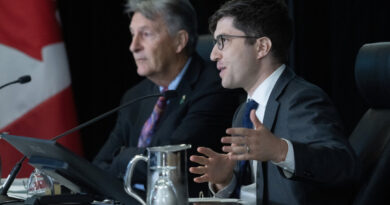EU Warns of ‘Significant’ Gaps in EV Tariff Negotiations with China
If no consensus is reached, the new duties on China-made EVs will kick in on Oct. 31.
The European Union stated on Oct. 25 that negotiations to avoid high tariffs on electric vehicles (EVs) made in China have significant remaining gaps. The tariffs are set to take effect next week.
The EU’s trade chief, Valdis Dombrovskis, conducted a virtual meeting with Wang Wentao, his Chinese counterpart, on Oct. 25. This meeting is part of the ongoing discussions to address Brussels’s concerns over subsidized EVs imported from China, as per the European Commission.
“The principals reviewed the progress made in eight technical negotiating rounds, as well as the remaining gaps,” states a readout of the video call. They have agreed that more technical negotiations will occur soon.
However, earlier this month, Beijing cautioned the EU against engaging in separate consultations with individual carmakers, noting that EV manufacturers have authorized the industrial group, the China Chamber of Commerce for Import and Export of Machinery and Electronic Products (CCCME), to present price commitment plans reflecting the industry’s collective standpoint.
“If the European side conducts separate price commitment consultations with some companies while negotiating with China, it will shake the foundation and mutual trust of the negotiations,” China’s commerce ministry said in a statement issued on Oct. 12.
During the video conference on Oct. 25, Dombrovskis emphasized that, per the WTO rules, “the possibility to offer price undertakings is open to the different companies participating in [the] investigation,” as per the readout. He informed Wang that the European Commission’s negotiations with the CCCME “do not exclude discussions with individual exporters,” according to the readout.
If no consensus is reached, the new duties on Chinese EVs will kick in on Oct. 31.
Under mounting pressure from Brussels, Janka Oertel, a senior policy fellow at the European Council on Foreign Relations, sees the Chinese regime facing a critical juncture, with neither path appearing promising.
“The latter is politically unlikely, while the former may be too costly given China’s weakening economy—if member states support Brussels and challenge Beijing’s bluff.”





